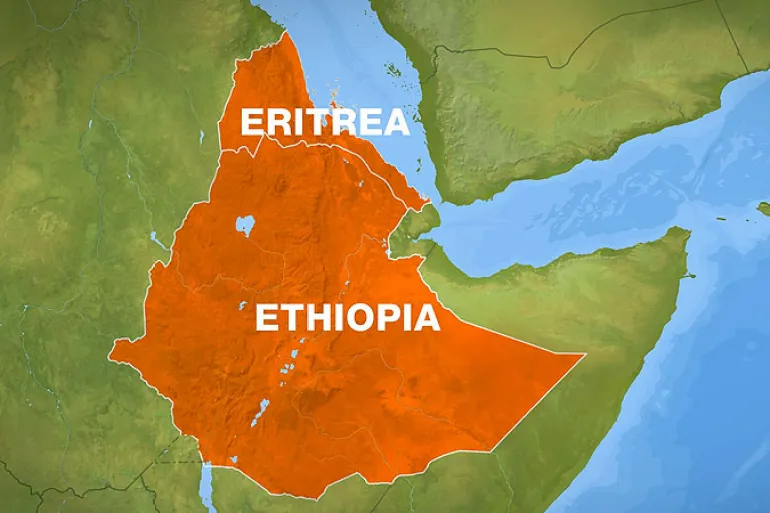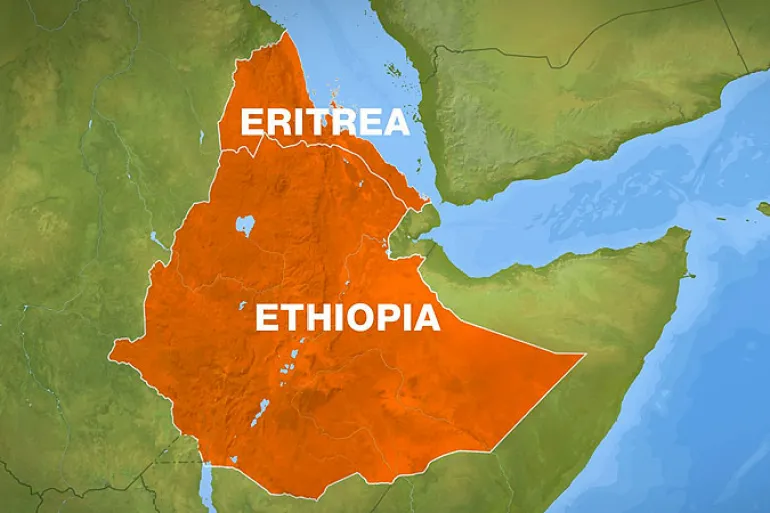
Ethiopian Prime Minister Abiy Ahmed has urged the international community to help mediate mounting tensions with Eritrea, as Addis Ababa seeks to restore direct access to the Red Sea.
- Ethiopian Prime Minister Abiy Ahmed seeks international mediation over tensions with Eritrea regarding access to the Red Sea.
- Ethiopia has been landlocked since Eritrea’s independence in 1993, losing its coastline and seaport access.
- A 2018 peace agreement between Ethiopia and Eritrea improved relations, but underlying disputes remain unresolved.
- Renewed tensions arise from Ethiopia’s push for sovereign sea access, leading to Eritrean opposition citing destabilisation risks.
Ethiopian Prime Minister Abiy Ahmed has urged the international community to help mediate mounting tensions with Eritrea, as Addis Ababa seeks to restore direct access to the Red Sea for its landlocked economy.
Land-locked Ethiopia has long regarded direct access to the Red Sea as a strategic necessity. Since the separation of Eritrea in 1993, which stripped Ethiopia of its coastline, Addis Ababa has been entirely dependent on neighbouring states for seaport access.
The two countries signed a major peace agreement in 2018, which was widely celebrated, reopening relations and reducing the immediate risk of war.
DON’T MISS THIS: His $5,000 was frozen by PayPal. Now he’s raised nearly $6million to expand stablecoin cross-border payments for Africans
Yet the 2018 thaw never fully resolved underlying disputes. The fragile détente has since unravelled, with Ethiopia accusing Eritrea of backing armed groups opposed to Abiy’s government, and commercial flights between the countries have been suspended, according to Bloomberg.
Demand for Sea Access
The renewed rift follows Abiy’s repeated calls for Ethiopia to regain sovereign sea access, a loss dating back to Eritrea’s 1991 independence.
Since October 2023, Ethiopia has been pushing for renewed access to the Red Sea, arguing that it had erred in relinquishing control of ports to Eritrea at the time of its independence.
DON’T MISS THIS: Africa’s trade champions: The top 10 exporting countries powering the continent’s internal market
As the rhetoric intensifies, Eritrea’s government has denounced the push as dangerous and destabilising, warning it could worsen mistrust and threaten regional stability.
“Ethiopia’s access to the Red Sea is inevitable. I prioritize peace and dialogue; please help us negotiate and find solutions,” Abiy said on Tuesday in an address to parliament in Addis Ababa, the capital. “We have no desire for conflict with anyone, but if we are forced into it, the outcome is clear.”
Beyond Eritrea, Ethiopia has also pursued maritime access through neighbouring territories. A recent agreement with Somalia’s breakaway region of Somaliland triggered a diplomatic crisis with Mogadishu, only easing after Turkey stepped in to mediate.












